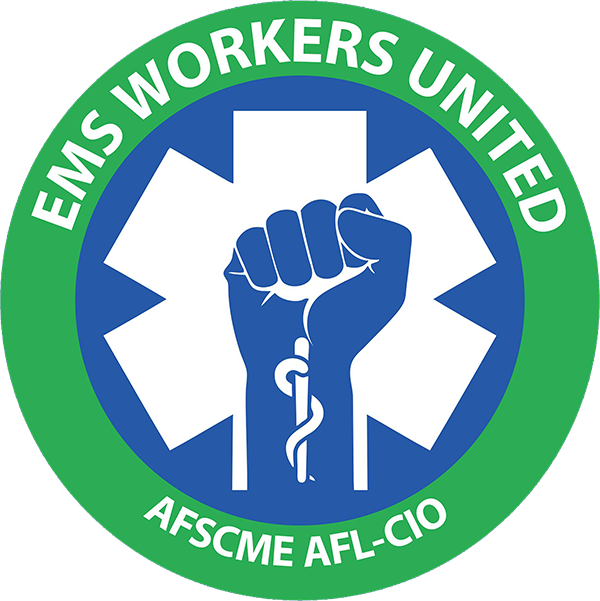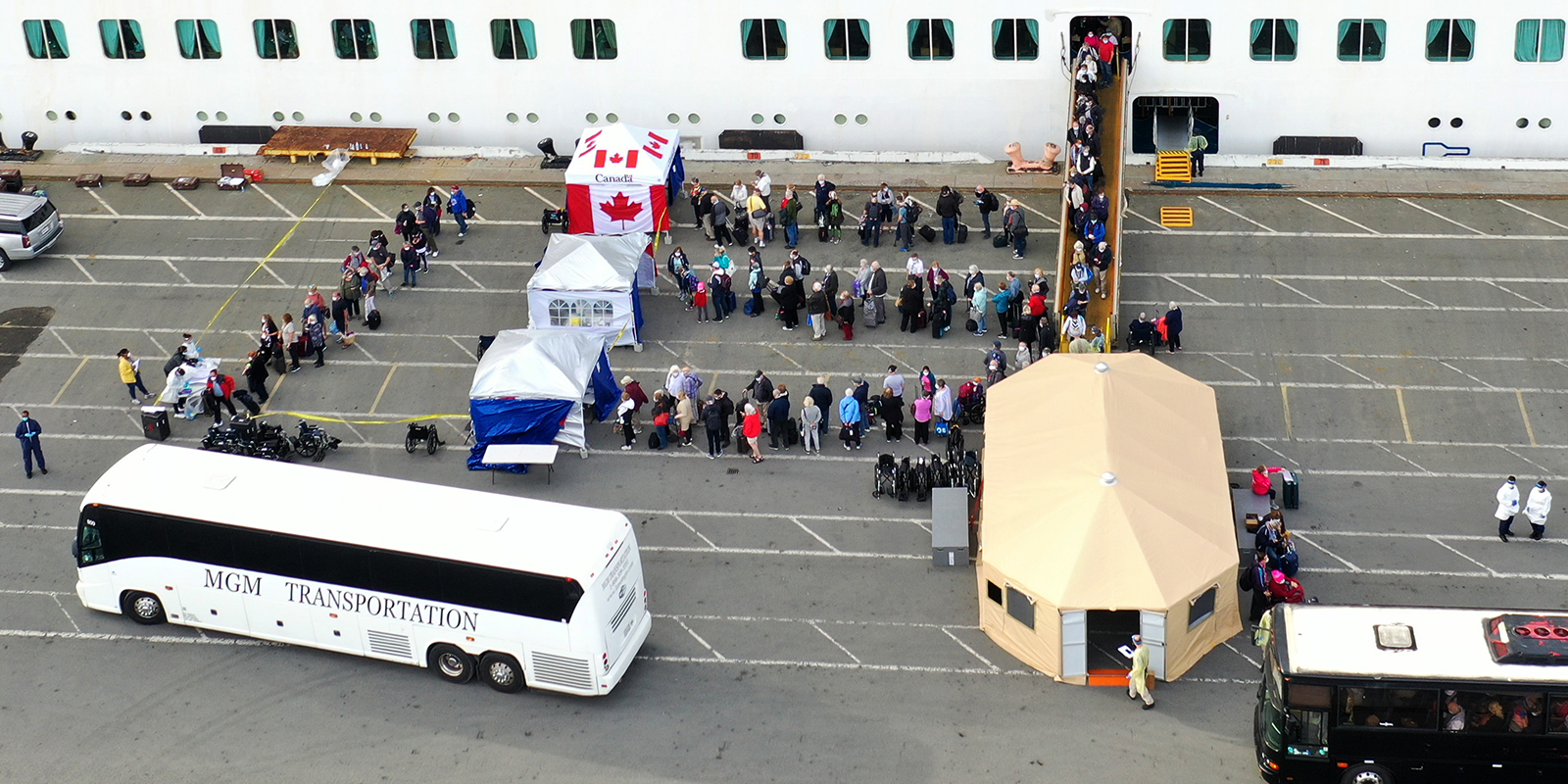The coronavirus pandemic spurred Emergency Medical Technician Blake Anderson, a member of United EMS Local 4911, to respond rather than shrink away – even if that meant asking to be sent to the most dangerous front line in the battle against COVID-19.
Anderson served as part of a “strike team” of EMS professionals deployed from the area around Yolo and Placer Counties in California and beyond, to Oakland, California, where the Grand Princess cruise ship was docked for a week. The ship was quarantined offshore because several passengers had become infected with the coronavirus, potentially exposing thousands of other passengers and ship personnel.
The vessel has now finally left Oakland after discharging all the passengers and will be quarantined in a remote dock in nearby San Francisco before all crewmembers can leave.
Anderson, who works for the private ambulance company American Medical Response (AMR), spoke to AFSCME Now when the cruise ship was still docked in Oakland.
“We’re here to assist the federal government and state government in making sure patients are taken care of and have the assistance they need,” Anderson said.
He was ready around the clock to help evaluate patients whenever needed.
“We wait to find out if there’s anyone who we deem as a patient,” said Anderson, meaning someone showing clinical symptoms of a coronavirus infection. “It takes a lot of coordination, but we’ll wait till the person is ready, so they can be transported to a hospital or other facility.”
Anderson said the majority of the more than 2,400 passengers on board didn’t appear to have any symptoms or signs of infection.
“There is occasionally a person who has symptoms and is awaiting testing for coronavirus,” Anderson said, adding that he worked with other medical professionals to facilitate the transport of those patients to the proper facilities.
A little more than a week ago, 21 people on board the ship had tested positive for the coronavirus. At least one has died.
Despite the fact that Anderson worked constantly, with only sporadic breaks, and despite the danger that COVID-19 poses to everyone, it was a job he volunteered for.
“Any time something like this comes up, I try to help out as best as I can,” said Anderson. Last year, he was sent to the Camp Fire, which ravaged Butte County, California.
Anderson was also one of three AFSCME members who joined AFSCME President Lee Saunders for a press call on Monday to share their stories of heroism, spotlighting the fact that most AFSCME members are on the front lines of the fight against the coronavirus pandemic.
“My unit is well equipped and prepared, but we also have peace of mind knowing that we have a union that has negotiated good benefits for us,” said Anderson. “We do not have to worry that we will not be taken care of if we get ill.”
However, many workers do not have the same peace of mind. Saunders and the member-speakers called on the federal government to enact a far-reaching plan to address the crisis and mitigate the harm it will inflict on America’s communities and working families. The federal assistance package should include robust aid for state and local governments so they can invest in public services and take other critical steps like expanding their Medicaid programs to offer medical coverage to more residents.

